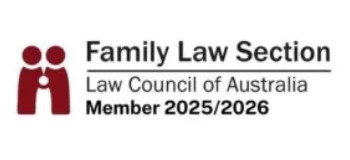Collaborative Family Law Brisbane Keep Things Civil, Calm and in Your Control
You don’t want a courtroom battle. You want a respectful outcome that protects your co-parenting relationship, your privacy and your peace of mind.
You Want an Outcome Without a Fight - and You’re Not Alone
Most people who contact us about collaborative family law aren’t angry. They’re anxious to move forward, respectfully, fairly, and quickly.
They want:
- Starts with your end goal in mind
- Supports open, compassionate conversations
- Uses cost-benefit thinking to keep the process lean
- Brings in specialists (accountants, coaches, brokers) if needed – only when needed
Collaborative law creates a structured space to negotiate legal, financial and parenting matters with professionals – not pressure.

Here’s What Happens When You Contact Your Collaborative Practice Lawyers...
Talk With an Experienced Lawyer
Quick response – no delays and you will speak with a expert, understanding lawyer who cares.
Get Clear Answers About Your Rights
We’ll explain what’s possible and how the law applies to your specific case - in simple, plain English.
Feel Clear and Confident Moving Forward
Whether you engage us or not, you’ll leave the call with certainty and direction.

Collaborative Law Brings Everyone to the Same Table, Literally
In collaborative law, you and your former partner each work with your own specially trained collaborative lawyer. Together, with any needed financial or parenting professionals, you agree to work things out respectfully – outside of court.
You all sign an agreement not to go to court, and commit to transparency and cooperation.
The result? A faster, more affordable, more empowering path to finalising separation, parenting plans or property settlements.
Trusted & Recognised Memberships, Associations and Affiliations






What Clients Say After Working With Us
Posted onTrustindex verifies that the original source of the review is Google. Very happy with the service, advice I received from Skye, Felicity and team. Very professional, and listened to my needs to provide good advice. Highly recommendPosted onTrustindex verifies that the original source of the review is Google. Jill and the team are professional, responsive and very knowledgeable. I have no reservations in recommending the law peoplePosted onTrustindex verifies that the original source of the review is Google. Jill Johnstone and The Law People team always provide exceptional service from start to finish which is why Rouse Lawyers confidently refers its clients who need expert and experienced family law solicitors to them. The Law People know how to guide clients through every step, making potentially stressful situations more manageable. Clients benefit from The Law People’s incredible knowledge and genuine care for client well-being.Posted onTrustindex verifies that the original source of the review is Google. Jill and the team are fantastic. I highly recommend them for any family law matters.Posted onTrustindex verifies that the original source of the review is Google. The staff at The Law People are total pros. They are friendly, supportive and above all they get results. Highly recommend, particularly if you are a woman who is nervous about being taken seriously.Posted onTrustindex verifies that the original source of the review is Google. Wonderful team to work with.Load more


Led by an Accredited Family Law Specialist
When everything feels uncertain, it helps to know you’re being guided by a team led by one of Queensland’s most qualified family lawyers.
Less than 3% of solicitors in Queensland hold the title of Accredited Specialist in Family Law. It’s not a marketing term – it’s formal recognition from the Queensland Law Society that Jill Johnstone, Principal of The Law People, is among the top-tier experts in the state.
For you, that means:
- Advice that’s precise, strategic and fully aligned with current legal standards
- Representation from someone trusted by peers, judges, and clients alike
- Fewer delays, fewer missteps, and a smoother path to resolution
In complex or high-stakes matters – especially involving children, property, or financial disputes – that level of expertise can make a real difference in your outcomes.
What truly sets this team apart is that legal skill never comes at the expense of personable service. You’ll feel it from the first conversation – real understanding, practical advice, and guidance that puts your best interests at the centre.
So if you’ve been searching for family law advice you can truly trust – you’ve just found it.
Win-Win Outcomes. No Courtroom Drama
Most law firms approach separation like a battleground. But when your focus is on peace, privacy and fairness – you need a team that sees the whole picture.
Our team:
- Starts with your end goal in mind
- Supports open, compassionate conversations
- To keep things private
- Brings in specialists (accountants, coaches, brokers) if needed – only when needed
You’re never pushed to escalate. You’re empowered to resolve.

Common Questions About Collaborative Family Law
If you want to avoid the stress and expense of going to court, collaborative practice may be the right path. It’s a respectful, solution-focused process where you and your former partner work with specially trained lawyers (and sometimes other professionals) to reach agreements that truly suit your family.
What is Collaborative Practice?
Collaborative practice is a way of resolving family law matters without going to court. Instead, both parties and their lawyers agree to work together in a series of structured meetings to reach a fair and practical outcome. The focus is on problem-solving, not fighting.
How is it different from mediation?
Mediation usually involves a neutral mediator helping guide discussions, but the mediator cannot give legal advice. In collaborative practice, each person has their own specially trained collaborative lawyer who provides advice and guidance throughout the process, while still working towards a shared resolution.
Do I still need a lawyer if we are collaborating?
Yes. Collaborative practice only works if both parties are represented by collaboratively trained lawyers. This ensures you understand your legal rights and obligations, while also keeping the discussions constructive and focused on solutions.
A Better Divorce is Possible. Let’s Begin With Respect
Whether you’re at the beginning or ready to take the next step, collaborative law may be the most dignified, efficient path forward.
Your Questions About Child Support - Answered
What happens if we can’t reach an agreement?
If the collaborative process breaks down, your collaborative lawyers must withdraw, and you’ll need to engage different lawyers to represent you in court. This rule is part of what motivates everyone to stay committed to finding a resolution during collaboration.
What types of issues can be resolved collaboratively?
Most family law issues can be dealt with collaboratively, including property settlements, parenting arrangements, spousal maintenance, and child support. It’s especially helpful for families who want to preserve respectful communication and focus on the best interests of children.
Is collaborative practice cheaper than going to court?
Often, yes. While there are still legal fees, the process is generally faster, less adversarial, and more focused, which usually means lower costs overall compared to drawn-out court proceedings.
Who else is involved besides lawyers?
Collaborative practice can also bring in neutral professionals, such as financial advisers, accountants, or child specialists, if needed. These experts help ensure agreements are well-informed and practical for the whole family.
What are the benefits of collaborative practice?
- It reduces conflict and promotes respectful communication.
- It keeps decision-making in your hands, not a judge’s.
- It’s private and confidential.
- It supports healthier long-term co-parenting relationships.
- It focuses on solutions that work for the whole family.
